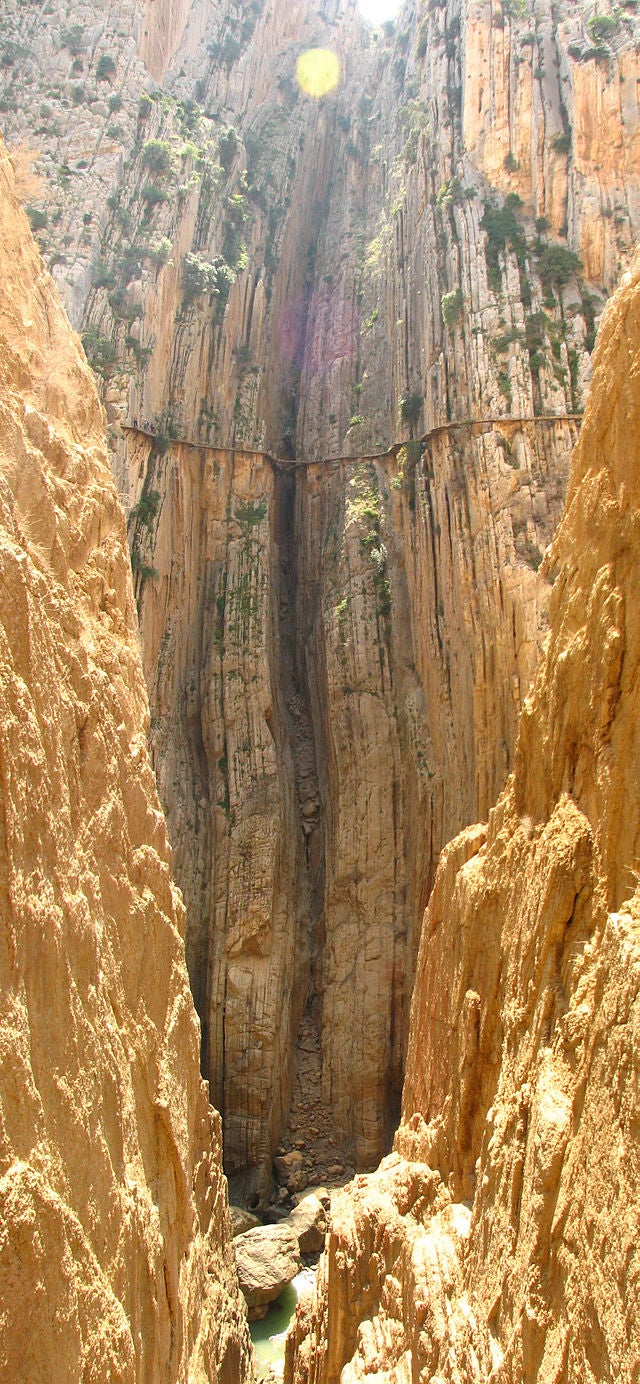El Caminito del Rey: one of the world's most dangerous walkways to reopen next year in Spain
Tourists have continued to trespass, despite the dangerous path being closed for restoration until 2015

Your support helps us to tell the story
From reproductive rights to climate change to Big Tech, The Independent is on the ground when the story is developing. Whether it's investigating the financials of Elon Musk's pro-Trump PAC or producing our latest documentary, 'The A Word', which shines a light on the American women fighting for reproductive rights, we know how important it is to parse out the facts from the messaging.
At such a critical moment in US history, we need reporters on the ground. Your donation allows us to keep sending journalists to speak to both sides of the story.
The Independent is trusted by Americans across the entire political spectrum. And unlike many other quality news outlets, we choose not to lock Americans out of our reporting and analysis with paywalls. We believe quality journalism should be available to everyone, paid for by those who can afford it.
Your support makes all the difference.The footpath believed to be the most dangerous walkway in the world is set to reopen to adrenalin-junkie tourists who might be disappointed to discover it’s had a health and safety makeover.
The King’s Pathway, a metre-wide path which cuts through the Gaitanes Gorge in southern Spain, El Caminito del Rey, was shut down by authorities over a decade ago after five people plunged to their deaths between 1999 and 2000.
The narrow concrete path had fallen into disrepair with rickety hand rails and wide gaps that posed serious risks for even the most experienced climbers.
Since 2011, however, the walkway has been undergoing extensive repairs and renovations.
According to renderings, the path’s gaps have been filled in, making it much sturdier, and the addition of new stanchions and a security fence will protect visitors as they walk 330ft above the Guadalhorce River near the town of El Chorro.
The costly restoration project, which has been funded by the Andalusian and Malagan governments, will seek to capitalise on the walkway’s massive popularity, attracting brave tourists from across the world when it reopens in early 2015.
Even though the path’s entrances were closed years ago and climbers face a £4,700 fine for trespassing, thrill-seeking visitors continue to bypass security measures to navigate the footpath, which is over 100 years old and was originally built for workers at two nearby hydroelectric plants.
Join our commenting forum
Join thought-provoking conversations, follow other Independent readers and see their replies
Comments